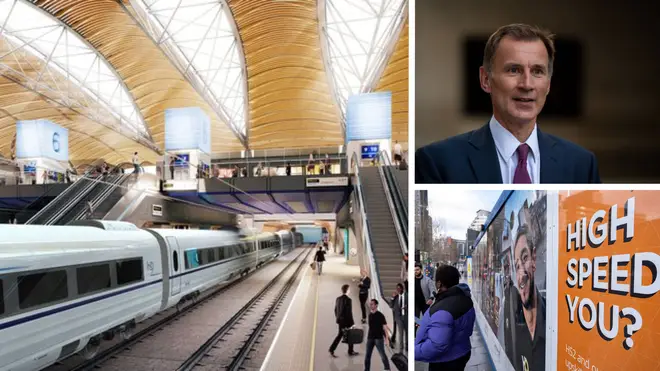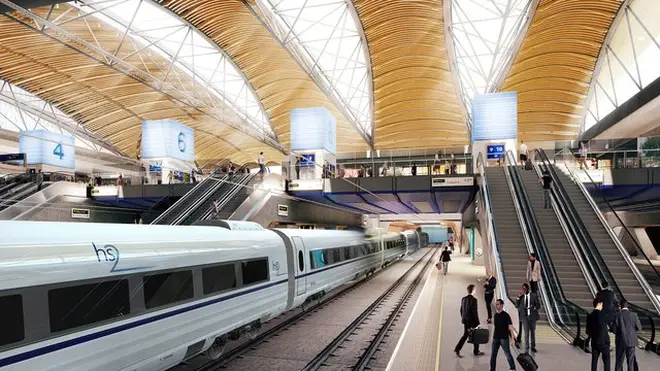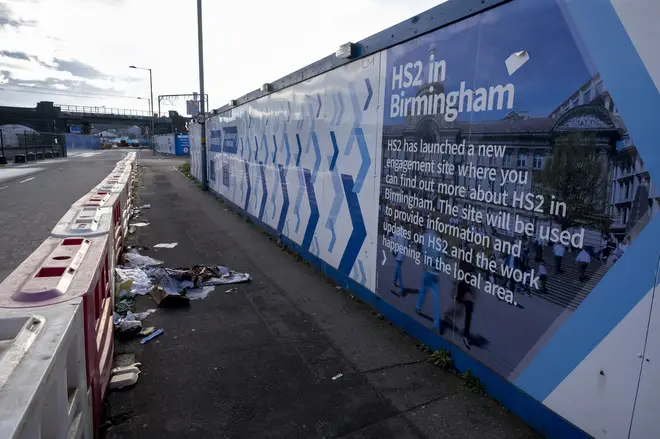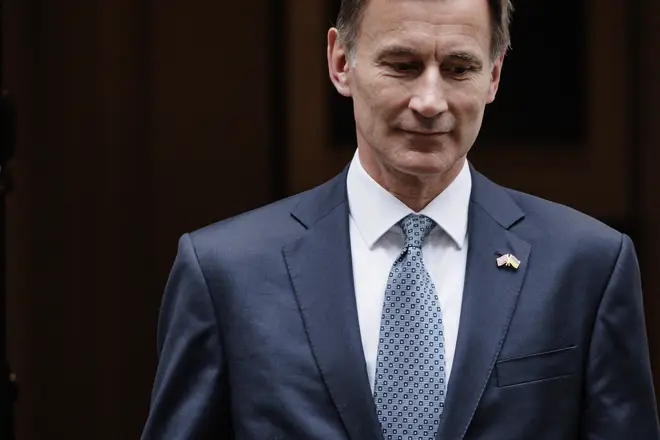
Richard Spurr 1am - 4am
27 January 2023, 06:01 | Updated: 28 January 2023, 01:07

Jeremy Hunt has said HS2 will reach central London and confirmed the government remains committed to the high-speed rail project following reports it could be scaled back.
The government had previously refused to confirm whether HS2 will reach central London amid reports the high-speed rail project could instead stop in the suburbs in west London.
"I don't see any conceivable circumstance in which that would not end up at Euston," Mr Hunt told the BBC.


There had been rumours that HS2 could stop in the suburbs in west London instead, leaving commuters to finish their journeys on the Elizabeth line, the Sun reported.
A Department for Transport spokesman had refused to confirm whether HS2 will reach London, but said the government "remains committed" to delivering HS2 to Manchester.
They said previously: "The Government remains committed to delivering HS2 to Manchester, as confirmed in the autumn statement.
"As well as supporting tens of thousands of jobs, the project will connect regions across the UK, improve capacity on our railways and provide a greener option of travel."
Read More: Tens of thousands of European Union citizens may have been erroneously paid benefits after Brexit
The target cost of Phase One between London and Birmingham was £40.3 billion at 2019 prices.
A budget of £55.7 billion for the whole of HS2 was set in 2015.
In October of last year, Levelling Up Secretary Michael Gove suggested capital investment for HS2 would be reviewed, but Chancellor Jeremy Hunt subsequently backed the project.

A report by think-thank Policy Exchange found that cancelling sections of the project where construction is yet to start could save the government £44bn.
Its author, the former No10 transport adviser Andrew Gilligan wrote: “HS2 now costs more to build than the value of the benefits it will deliver.
“The official benefit cost ratio shows that for every £1 spent on the scheme, the country gets back benefits worth only 90p. Shortening the scheme improves its value for money.”